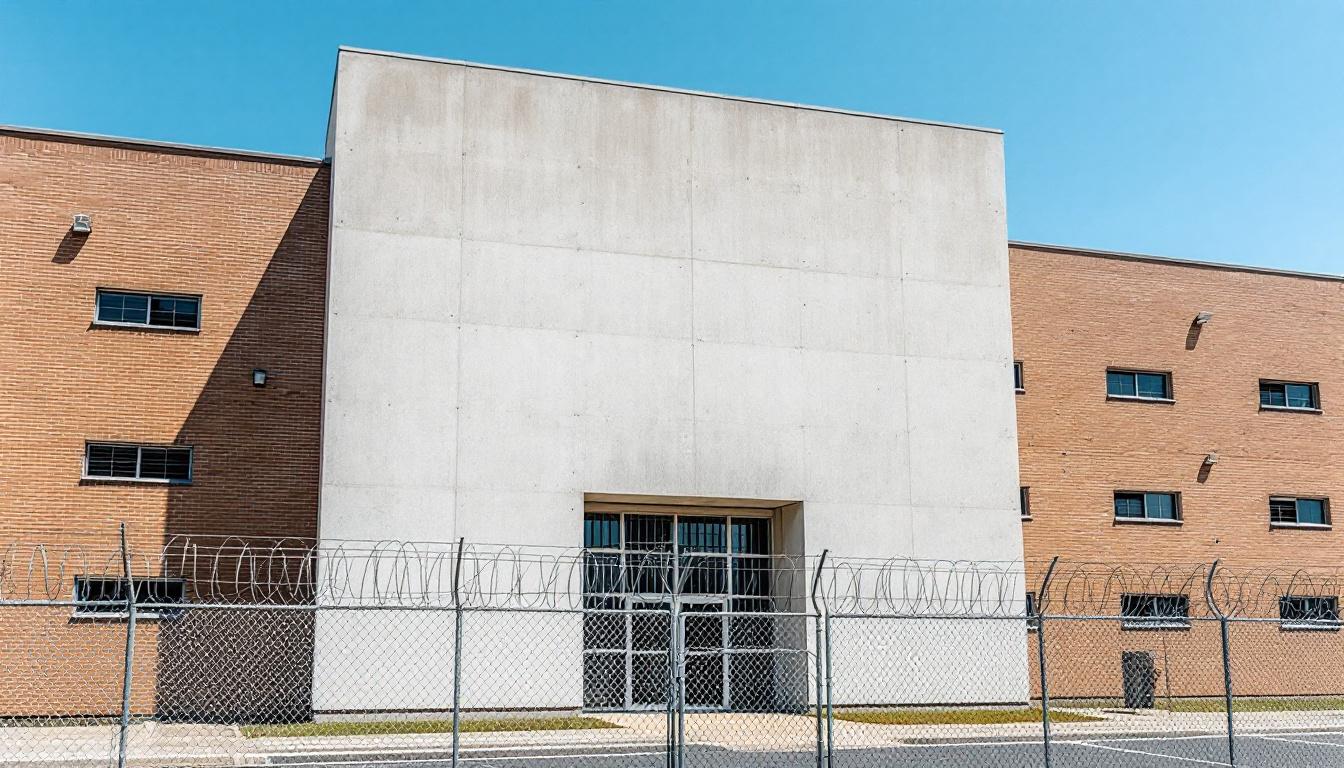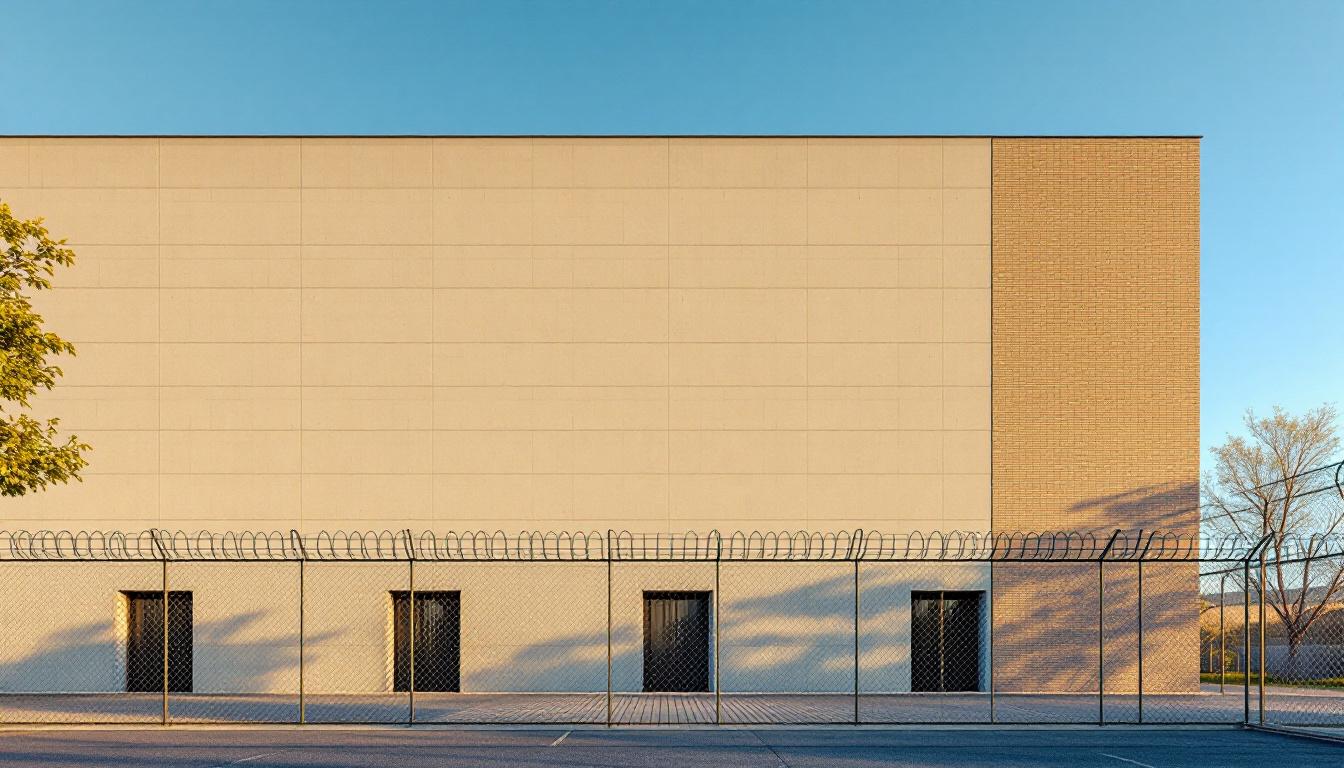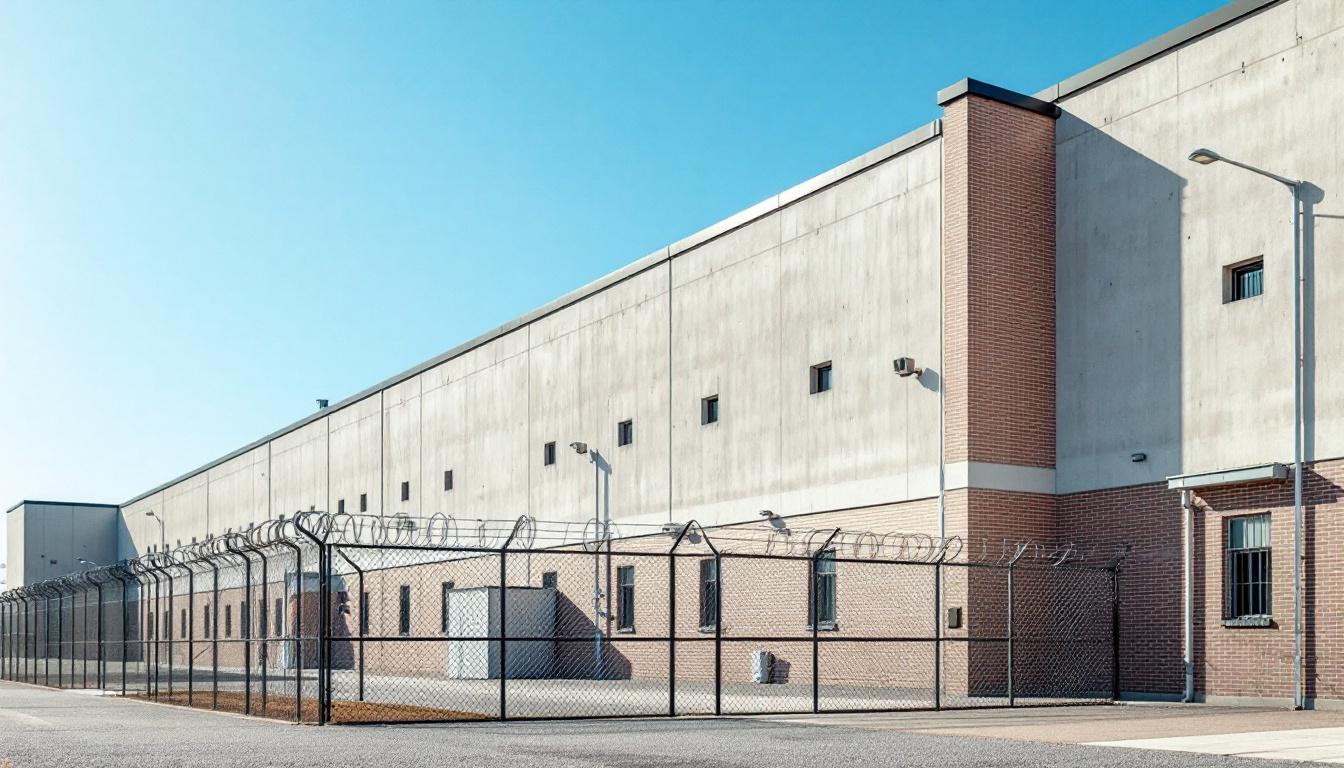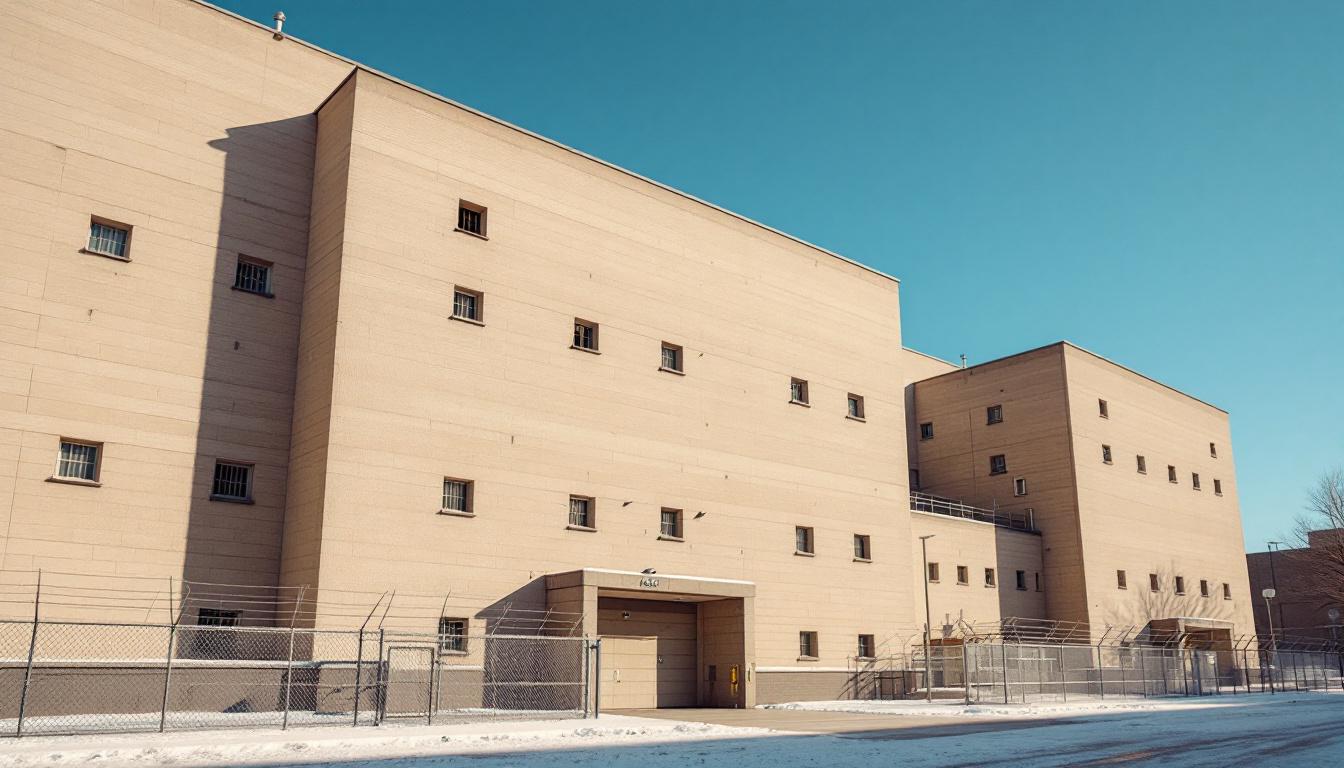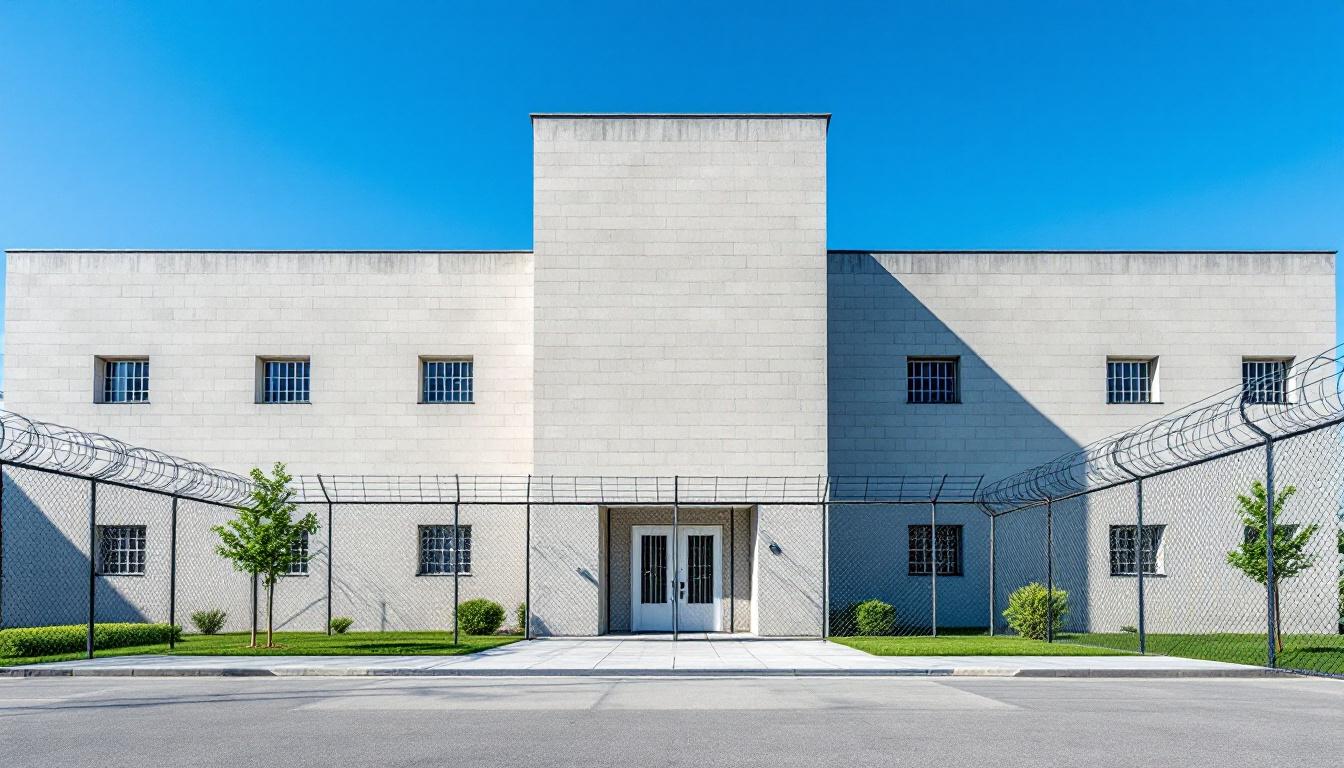
Quick Navigation
How to contact an inmate at Dallas County Sheriff
This comprehensive guide will walk you through how to connect with an inmate at Dallas County Sheriff. Follow the steps below to find an inmate and send letters and photos:
- Search for the inmate using our search tool below
- Create your account or log in to Penmate
- Write your message (up to 6,000 characters)
- Send instantly - inmates receive printed copies daily
Find an Inmate
Search for an inmate to start communicating today
Tip: You can search by first name, last name, or inmate ID number
To contact a person at Dallas County Sheriff start by searching for the person on the official facility website. Perform a search by following these steps:
- Step 1: Enter their first name and last name into the search form and click "Search"
- Step 2: Locate their inmate record
- Step 3: Write down their Inmate ID and any housing information provided
Important! Be sure to enter the person's full name. Nicknames should not be used.
How to Send Messages to Inmates

You can use your phone or computer to send emails, letters, and photos to an inmate. Messages are sent electronically to inmate tablets or kiosks at the facility. If you would like to send a message, start by searching for an inmate at Dallas County Sheriff.
Sending Photos and Postcards

A great way to send love and support to a loved one at Dallas County Sheriff is to send photos and postcards. It only takes a few minutes to send photos from your phone and it makes a huge difference. You can also mail postcards with words of support and inspiration, or design your own postcard for special moments like birthdays and holidays.
Important! Be sure not to send any explicit photos or they may not be approved by the facility. You can also use a photo printing app like Penmate to make sure your photos are printed at the correct size (4x6 or 3x5) and are mailed according to the rules and regulations of Dallas County Sheriff.
Frequently asked questions about Dallas County Sheriff
-
How long does it take to deliver a message?
If you're sending an email message your letter is usually delivered within 24-48 hours. For messages sent via mail you should expect delivery within 3-7 days. All messages will need be approved by Dallas County Sheriff.
-
How much does it cost to send a message to Dallas County Sheriff?
You can send a message free using your phone or mail a message via USPS for the price of a $0.60 stamp and envelope. You can also purchase credits or e-stamps from services starting at $1.99.
-
What services can I use to contact an inmate at Dallas County Sheriff?
Penmate
You can use Penmate to send letters and photos to an inmate from your phone. It's an easy way to stay in touch during your loved one's incarceration. Use the inmate locator to find an inmate's location and contact information, then you can send messages within a few minutes.
Securus messaging
Securus may be another option for communicating with an inmate at Dallas County Sheriff. You can create a friends and family account and purchase credits to send messages. All messages will be reviewed and must be approved by the facility.
JPay
Some county jails and state prisons may support sending messages with JPay. You must register an account with the system, find your loved one, and purchase stamps to send messages. For some locations you can also attach photos.
Smart Jail Mail
You may also check if Smart Jail Mail is available at Dallas County Sheriff. Smart Jail Mail is operated by Smart Communications and has contracted with some state and county jails. After purchasing credits, your messages and photos are sent to the facility, printed out, and then handed out to your loved one.
-
What is the mailing address of Dallas County Sheriff?
Mailing address:
Dallas County Sheriff
28985 THIN BLUE LINE LANE
Adel, IA 50003
Phone: (515) 993-4771 -
What are the visiting hours at Dallas County Sheriff?
Visiting hours at Dallas County Sheriff vary by housing unit and security level. Generally, visits are scheduled on weekends and holidays, with some facilities offering weekday visits. Contact the facility directly at (515) 993-4771 or check their website for the current visiting schedule. Visits typically last 30-60 minutes and must be scheduled in advance.
-
What items are prohibited when sending mail to Dallas County Sheriff?
Prohibited items typically include: cash, personal checks, stamps, stickers, glitter, glue, tape, staples, paperclips, polaroid photos, musical or blank greeting cards, hardcover books, magazines with staples, and any items containing metal or electronics. Only send letters on plain white paper with blue or black ink. Photos must be printed on regular photo paper (no Polaroids). Always check with Dallas County Sheriff for their specific mail policies.
-
How do I send money to an inmate at Dallas County Sheriff?
You can send money to an inmate at Dallas County Sheriff through several methods: 1) Online using JPay, Access Corrections, or the facility's approved vendor, 2) Money orders mailed directly to the facility with the inmate's name and ID number, 3) Kiosks located in the facility lobby, or 4) Over the phone using a credit or debit card. Fees vary by method, typically ranging from $2.95 to $11.95 per transaction.
-
Can I schedule a video visit with an inmate at Dallas County Sheriff?
Many facilities now offer video visitation as an alternative to in-person visits. At Dallas County Sheriff, video visits may be available through services like Penmate, Securus Video Connect, GTL, or ICSolutions. Video visits typically cost $10-20 for 20-30 minutes and must be scheduled in advance. You'll need a computer or smartphone with a camera and reliable internet connection. Contact the facility for their specific video visitation policies and approved vendors.
-
What identification do I need to visit an inmate at Dallas County Sheriff?
All visitors must present valid government-issued photo identification such as a driver's license, state ID, passport, or military ID. Minors must be accompanied by a parent or legal guardian who can provide the minor's birth certificate. Some facilities require visitors to be on the inmate's approved visitation list, which may require a background check. Contact Dallas County Sheriff for specific ID requirements and visitor approval procedures.
-
How can I find out an inmate's release date?
To find an inmate's release date at Dallas County Sheriff, you can: 1) Use the online inmate search tool if available, 2) Call the facility's records department, 3) Contact the inmate's case manager or counselor, or 4) Have the inmate provide this information during a call or visit. For privacy reasons, some facilities only release this information to immediate family members.
Facility Overview
Contact Information
Dallas County Sheriff28985 THIN BLUE LINE LANE
Adel, IA 50003
Phone: (515) 993-4771
Official Website

About Dallas County Sheriff
Nestled in the heart of Adel, Iowa, this correctional facility serves as a cornerstone of public safety for Dallas County while maintaining a steadfast commitment to transforming lives through comprehensive offender management strategies. The Dallas County Jail, IA operates with a community-centered philosophy that recognizes each resident as an individual capable of positive change, implementing evidence-based approaches that address the root causes of criminal behavior rather than simply managing incarceration periods.
Through carefully structured programming that may include educational opportunities, substance abuse counseling, and vocational skill development, this IA correctional facility works to break cycles of recidivism that often plague traditional correctional approaches. The facility typically offers residents services designed to address mental health needs, addiction recovery, and basic life skills that prove essential for successful community reintegration. Staff members generally focus on creating an environment where accountability meets opportunity, recognizing that effective rehabilitation requires both structure and support systems that extend beyond the facility walls.
Dallas County's approach to corrections reflects broader Midwest values of community responsibility and second chances, with programs often emphasizing family reunification and local workforce preparation. The county jail typically collaborates with regional service providers to ensure residents have access to continuing support networks upon release, understanding that sustainable change requires ongoing community investment in individual success stories.
Programs & Services
**Rehabilitation through education and therapeutic intervention** forms the cornerstone of Dallas County Jail's comprehensive approach to resident development. The facility typically emphasizes evidence-based initiatives that address both immediate needs and long-term reintegration goals. Staff members often work collaboratively to create individualized pathways that may include academic advancement, skill development, and behavioral health support. This holistic philosophy recognizes that successful outcomes frequently depend on addressing multiple factors that contribute to criminal behavior patterns.
Educational services may deliver foundational literacy instruction alongside vocational programs designed to enhance employment prospects upon release. Residents often participate in basic education courses that can help them earn equivalency credentials, while vocational initiatives typically focus on practical skills training in areas such as construction, food service, or maintenance. Furthermore, these educational opportunities are usually complemented by career counseling services that help residents identify realistic employment goals and develop job-seeking strategies.
Support services often include comprehensive mental health services that address underlying behavioral health concerns through individual and group therapy sessions. Library services typically provide residents with access to legal resources, educational materials, and recreational reading options that support both personal growth and case preparation. Family reunification initiatives may offer structured visitation programs and communication opportunities designed to maintain important relationships during incarceration. These therapeutic and support components work together to create an environment where residents can address personal challenges while building skills necessary for successful community reintegration.
Daily Life & Visitation
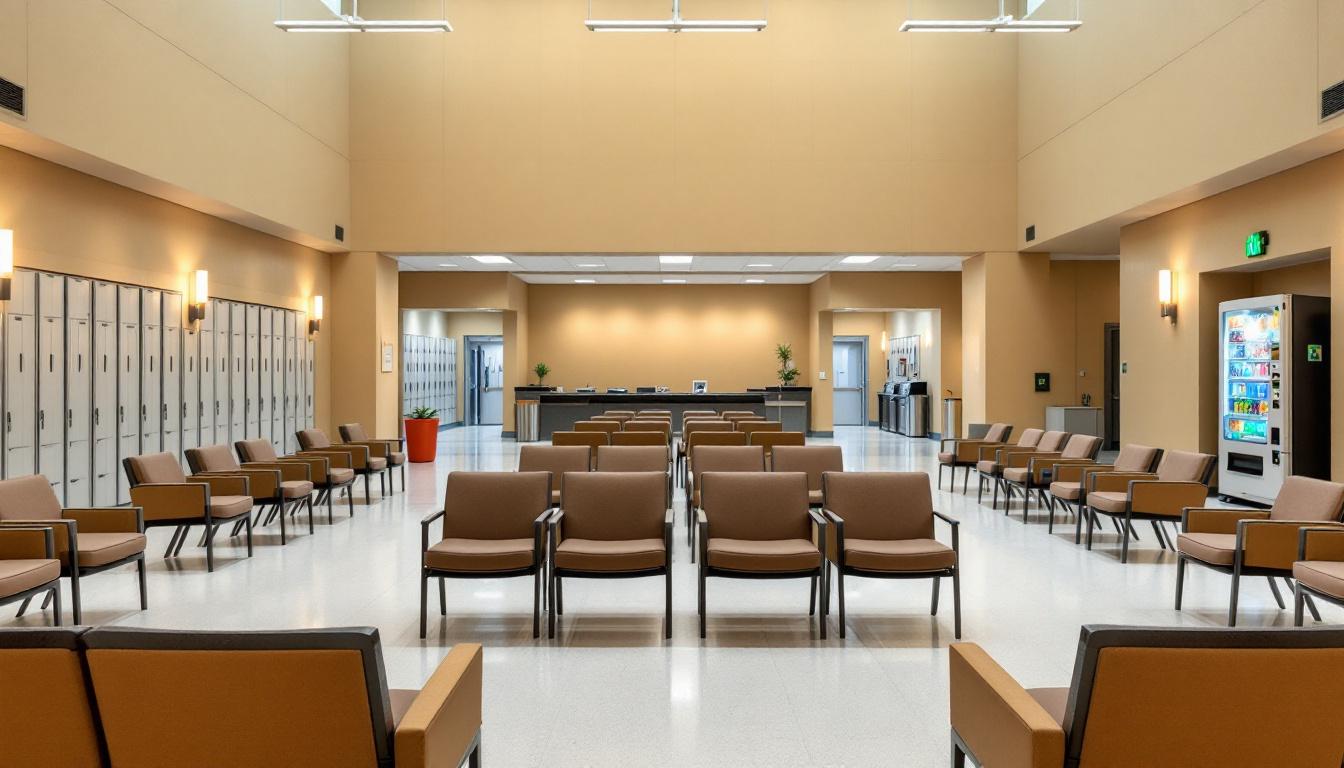
At present, structured routines actively guide every aspect of residential life, beginning with early morning wake-up calls that set the tone for organized days ahead. The schedule typically includes designated times for meals, programming activities, and personal hygiene, creating predictable patterns that many residents find helpful for maintaining stability. Count times occur regularly throughout the day to ensure accountability and security.
Living accommodations at Dallas County Jail generally consist of housing units designed to manage different population needs safely and effectively. Residents typically share cells or dormitory-style spaces, with basic furnishings including beds, storage areas, and shared bathroom facilities. Personal property allowances usually permit essential items like clothing, hygiene products, and limited personal effects, while commissary services may offer additional approved items for purchase. Furthermore, the facility delivers structured meal service in designated dining areas, with menus that generally meet basic nutritional requirements.
Although security protocols necessarily limit some freedoms, recreational opportunities often include access to television, reading materials, and scheduled outdoor time when weather permits. Work assignments within the facility typically provide residents with purposeful activities while supporting daily operations through roles in food service, cleaning, or maintenance duties. Programming schedules may deliver educational classes, substance abuse counseling, or other supportive services designed to address individual needs. Visitation policies usually allow scheduled contact with family members and approved visitors, while phone access and correspondence options help residents maintain important relationships during their stay.
Ready to Connect?
Start communicating with your loved one today
Search for an Inmate


